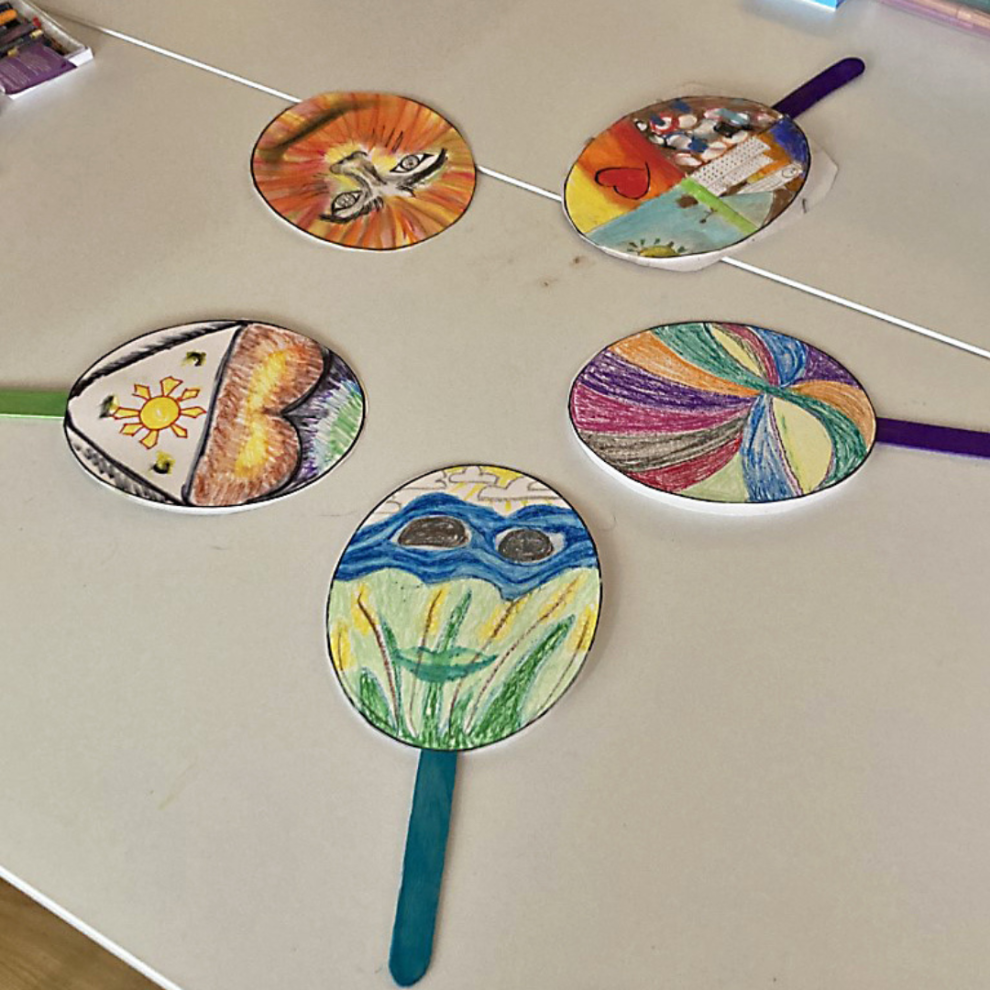
Art therapy can help people process traumatic experiences, whether it be through colour, images, or drawings. The Jewish Federation of Edmonton, Jewish Family Services, and the Edmonton Public Library are aiming for this goal through workshops linked to an art exhibit.
The organizations are holding the Art and Healing Workshop: They didn’t know we were seeds two more times—Thursday, November 3 and Sunday, November 20. They successfully held one session on Thursday, October 13. An Edmonton Community Foundation grant funds these workshops.
They aimed these art therapy sessions at people from Indigenous and Jewish communities who are survivors or intergenerational survivors of residential schools, day schools, the Sixties Scoop, the Millennial Scoop, and the Holocaust. They are being held with an art exhibit by Carol Wylie, They didn’t know we were seeds, at the Stanley A. Milner Library until November 25.
Participants will hear from Edmonton Public Library’s Elder in Residence Nohkom Jo-Ann Saddleback on the meaning of art and creativity from a Nehiyaw (Plains Cree) perspective and then work with Heather Frayne, a therapist from Jewish Family Services who specializes in expressive arts therapy. Participants will work with provided art supplies to create artworks about their inner and outer face and then share with the group.
“The outer mask is to represent what is the face that we show to the world. What stories do we carry in our face? The inner face is the more vulnerable part, such as what do I wish I could show the world? What do I carry on the inside of me that may not show up on the outside?” explains Heather.
Creating art or facing a blank canvas may intimidate some people. However, it doesn’t matter what the result is if the participant feels they have expressed emotions or feelings and have meaning to them.
“An expressive art therapy session involves talking about emotions and finding where in the body is the person feeling these emotions. Maybe you are feeling sadness and it feels like a ball in the pit of your stomach and it’s blue. Or you are feeling anxious, and it feels like this scribbly energy in your chest. It’s abstract but may make sense to the participant,” says Heather.
Although the workshops won’t delve into connecting emotions to art like an art therapy session can, making art can still be a healing process. Organizers want participants will feel more connected to the exhibition, which features portraitures of nine Holocaust and nine Residential School survivors, through the workshops. After completing a workshop, they will have a better understanding of intergenerational community grief and trauma and learn the power of storytelling through making art.
“Our intention is it would be a gentle space to reflect and respond. We wanted to touch on not just generational trauma, but also generational resilience. What do we inherit from our ancestors that helped us to survive, but also to thrive? Then we hope people will reflect on how we want to move forward and how we want to treat each other as human beings,” says Heather.
The workshops are free. You can register on the Federation's community calendar.
